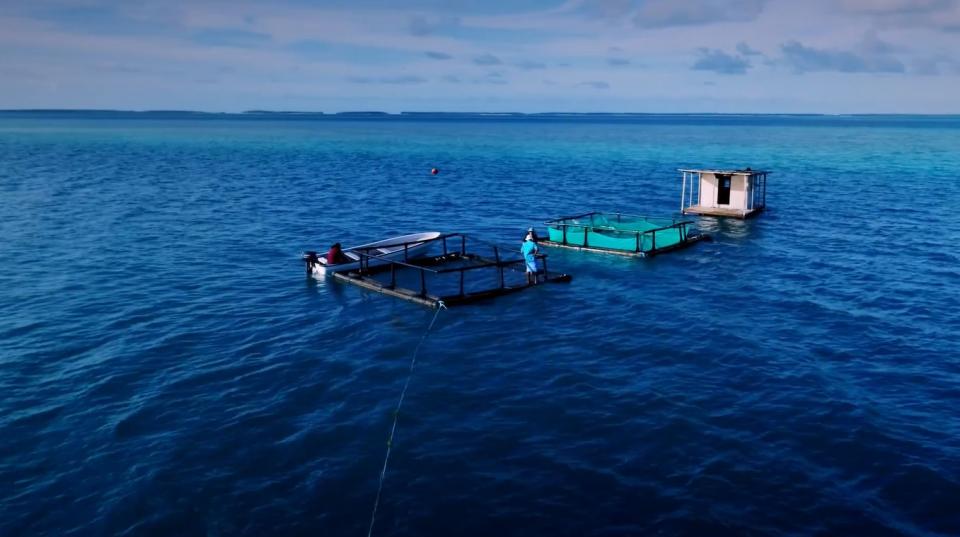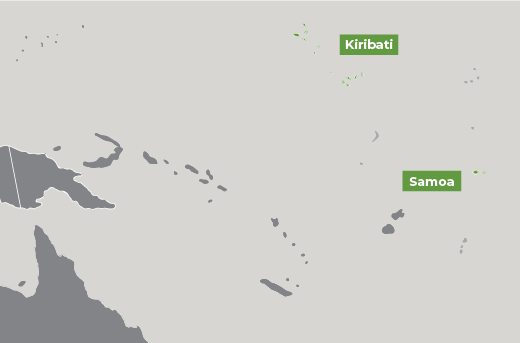Overview
This project aimed to develop gender-inclusive seaweed development activities for long-term health, income and wellbeing in coastal communities of Kiribati and Samoa.
Gender inclusive, nutrition-sensitive agriculture ensures the sustainable production of nutritious, affordable and safe foods to meet the dietary requirements of populations.
The project worked to transform seaweed fisheries as part of a nutrition-sensitive coastal food system comprised of short supply chains, village-based processing, targeted sustainable use of natural resources and marketing for family consumption. It developed and evaluated gender-inclusive activities in two Pacific countries, Kiribati and Samoa, to shift the focus of seaweed production from an export commodity only to one that provides direct benefits to the health and wellbeing of local communities as well as income opportunities for women.
Project outcomes
- Performed nutrient analysis of a range of key nutrients in locally consumed seaweed.
- Developed an innovative digital 24-hour dietary recall interview tool for implementation in Pacific Island countries.
- Collected dietary data from a large sample of Samoan adults, and establishment of a comprehensive Samoan dietary dataset including individual level macronutrient and micronutrient intake.
- Achieved a new understanding of men’s and women’s roles (actual and potential) in the seaweed value chain, and strengths and aspirations for development of seaweed industries at the village level.
- Codesigned a village-based capacity building model, Village Fishing Teams (VFT) for gender-inclusive seaweed development activities.
- Piloted and evaluated the VFT program in one coastal village in Samoa.





